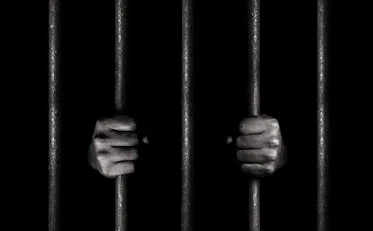"I meditate on injustice and pain all day, every day, because that's where I always am. I'm burning in hell on earth."
3.11.25
30.8.25
Reality
14.8.25
10.8.25
My constant companion
28.4.25
23.3.25
Destined to fail - the lower end of the food chain
8.3.25
16.2.25
A Journey Through Life's Wraith
30.12.24
19.12.24
26.11.24
The Impact of Trauma in Australian Public Housing
Public housing in Australia plays a vital role in providing shelter for individuals and families who might otherwise face homelessness. However, the living conditions within some public housing environments can contribute to trauma, affecting the mental and emotional well-being of residents. Understanding the sources and effects of this trauma is essential for developing strategies to support these communities.
One of the significant issues in public housing is overcrowding. Due to limited housing availability and high demand, multiple families or larger households may share spaces designed for fewer occupants. This overcrowding can lead to increased stress, tension among residents, and a lack of personal space, which are all factors that contribute to psychological distress.
Additionally, some public housing units suffer from poor maintenance. Issues like mold, pest infestations, inadequate heating or cooling, and faulty plumbing not only pose physical health risks but also exacerbate feelings of neglect and helplessness among residents. Living in such environments can lead to chronic stress and anxiety.
Safety is a fundamental human need, but some public housing areas experience higher rates of crime, including violence, drug-related activities, and property damage. Constant exposure to these threats can lead to trauma, with residents feeling perpetually unsafe in their own homes. Children in these environments are particularly vulnerable, as exposure to violence can have long-term effects on their development and mental health.
Residents of public housing often face social stigmatization, which can lead to feelings of shame and isolation. This stigma may stem from negative stereotypes associated with poverty and public assistance. As a result, individuals may withdraw from community engagement and social interactions, leading to loneliness and depression.
The accumulation of stressors—overcrowding, poor living conditions, safety concerns, and social isolation—can significantly impact mental health. Residents may experience symptoms of depression, anxiety, post-traumatic stress disorder (PTSD), and other mental health conditions. Without adequate access to mental health services, these issues can go unaddressed, affecting the overall quality of life.
Indigenous Australians and people from culturally and linguistically diverse (CALD) backgrounds are disproportionately represented in public housing. These communities may face additional trauma due to experiences of racism, cultural disconnection, and language barriers. The lack of culturally sensitive support services can further marginalize these groups, impeding their ability to cope with trauma.
References
• Australian Institute of Health and Welfare. (2021). Housing assistance in Australia.
• Department of Social Services. (2022). National Housing and Homelessness Agreement.
• Beyond Blue. (n.d.). Mental health support for people in social housing.
22.11.24
A Personal Journey of Alienation and Isolation
For the past 12 years, I've navigated the challenging waters of persistent anxiety and personality disorders. This journey has been marked by awkward conversational experiences, a constant feeling of not meeting societal expectations in etiquette, and a profound sense of alienation from the world around me. Reliving past traumas and anticipating future ones have become daily hurdles, often accompanied by an overwhelming sense of impending doom. Isolation and detachment have not just been feelings but have shaped the very fabric of my existence.
Traumatic experiences from the past don't stay confined to memories:
Unwanted recollections that feel vividly real. Constantly being on the lookout for potential threats. Steering clear of places, people, or situations that might trigger memories.
The anticipation of trauma reoccurring creates a perpetual state of fear and apprehension.
This sense of impending doom can be paralyzing, making it difficult to engage with the world.
Over time, these struggles have led to increasing isolation.
Isolation becomes both a refuge and a prison, providing temporary relief but exacerbating feelings of loneliness.
6.10.24
15.9.24
22.8.24
20.8.24
30.6.24
The severe consequences of miscommunication and mistreatment.
28.6.24
The flip side
My whole life, I have lived with extreme hyper sensitivity, hostility, disrespect, and abuse from others throughout my life, on a continual ...
-
Jack Kevorkian
-
I refuse to accept life or death as they are presented. I will not be a part of the unjust system that underlies our existence. I stand agai...







